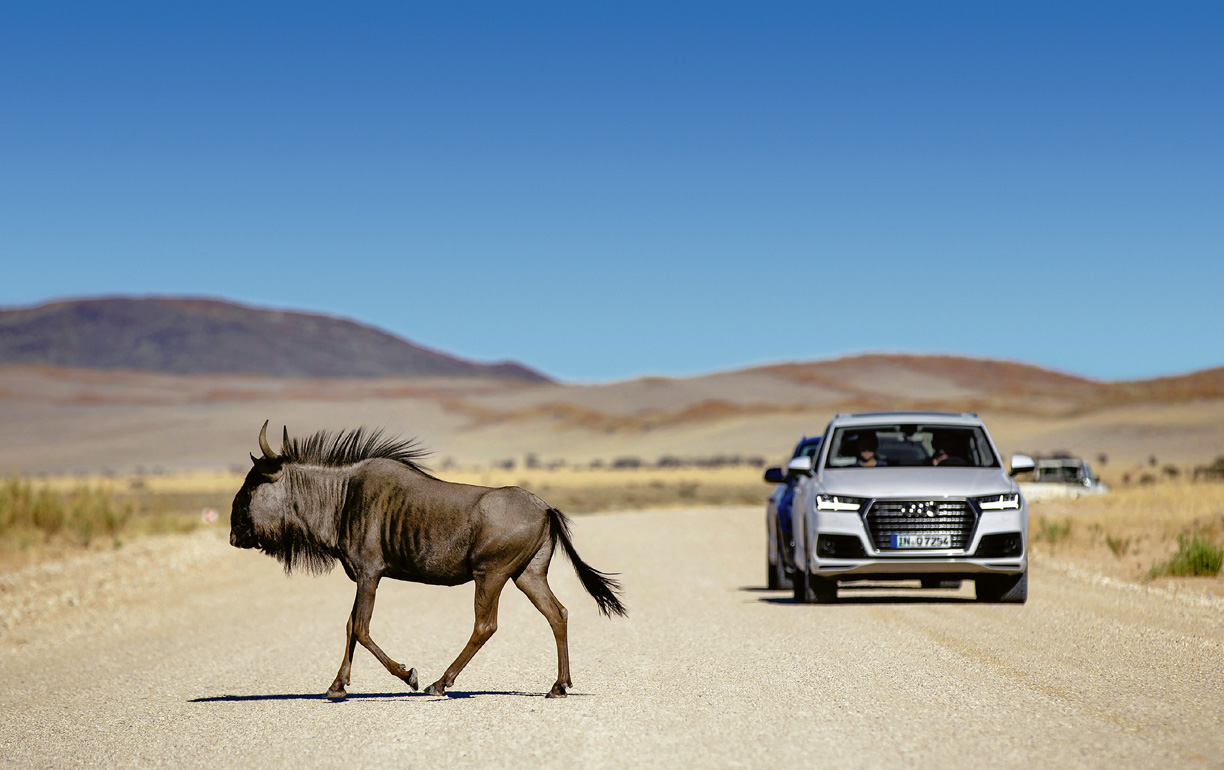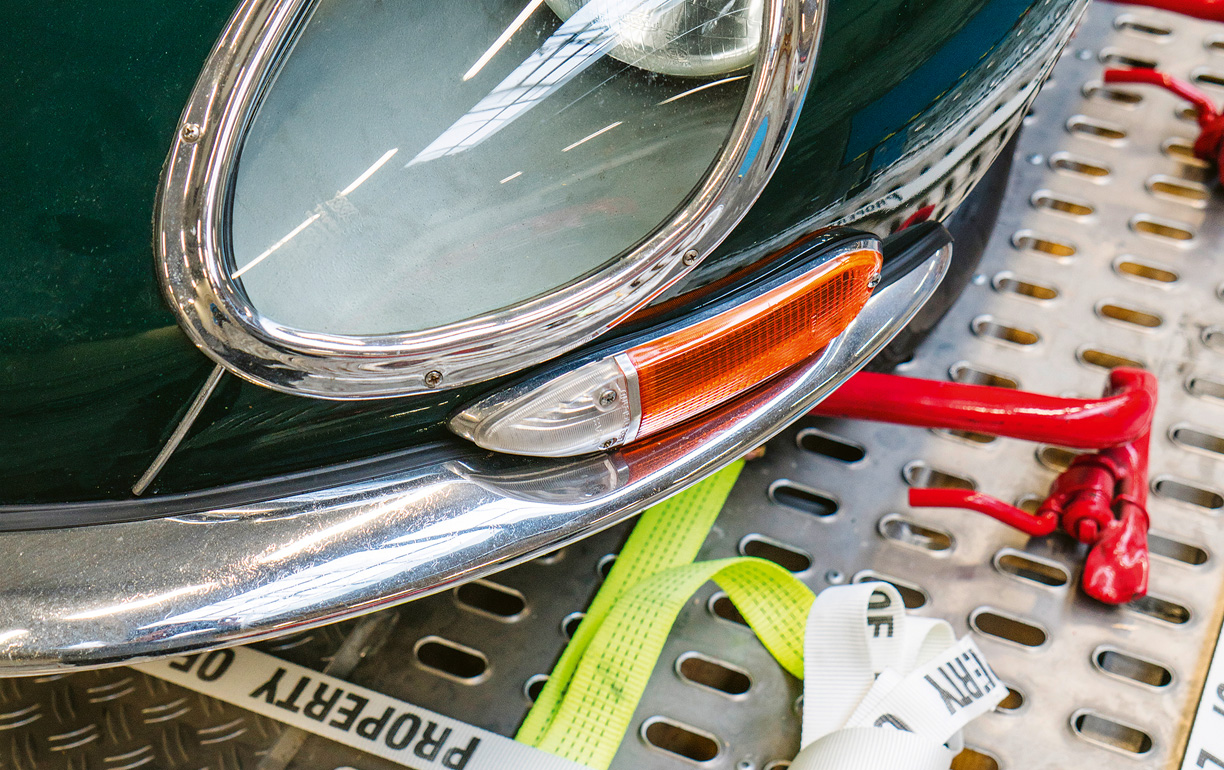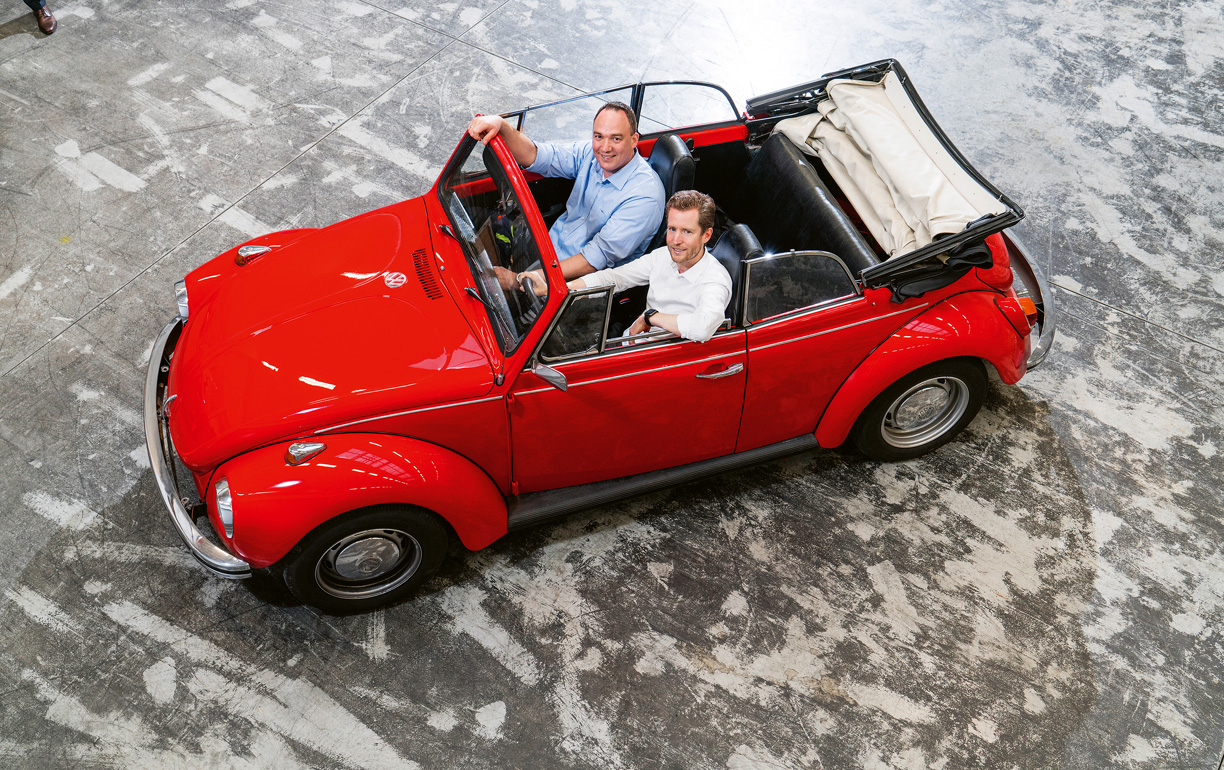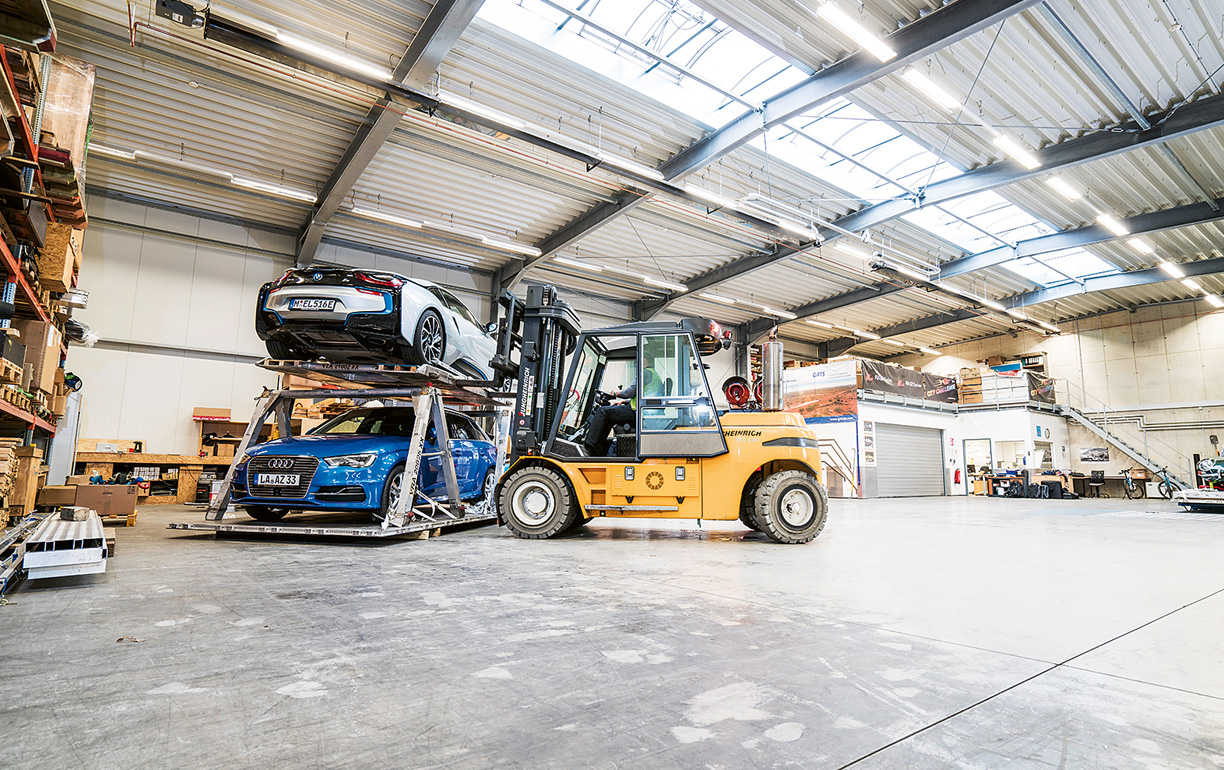
Car enthusiasts.
Test engineers put prototypes through their paces in the world’s most remote places. Everything required for these tests in terms of logistics is supplied by the IQS Group, as Alexis von Hoensbroech, Board Member Product and Sales at Lufthansa Cargo, found out during the “planet” on-site visit.
|
It is only an additional 26 centimeters in height, but they determine whether the sports car will still fit sideways into the lower deck of a Boeing 747-8 passenger plane. That is why the IQS loading equipment specialists have lashed specially built additional timber flooring onto the pallet. Sitting on this pedestal, the low-slung sports car with the powerful sound now fits snugly into the curved walls of the jumbo jet. Neither the spoiler nor the rear valance make contact. “Sometimes it is the simplest solutions to ensure that the handling of a car can be carried out safely, efficiently and cost-effectively,” says Marc Oedekoven, Chairman of the Management Board of the IQS Group. To demonstrate this very fact to Lufthansa Cargo Board Member Alexis von Hoensbroech, Oedekoven moves the aluminum template of the 747 into position once more – and lo, the bulky proportions of the Audi will make optimal use of the pallet positions on board. At the same time, the consignment will still fit into the maximum loading height of 1.63 meters despite being raised slightly, as verified by the laser-powered measuring equipment at the IQS headquarters in Langenbach near Munich Airport. |
IQS achieved its growth mainly with the transportation of test automobiles, trade fair and event vehicles as well as prototypes – a business that calls for a great deal of expertise and which depends on absolute discretion and trustworthiness. For a long time now, the Group has also been shipping old-timers, racing cars, armored limousines, military vehicles, test equipment, automotive parts and engines as well as valuable private vehicles of people who can afford to use this service. Last year over 4,000 cars were transported by air. |

In addition to test vehicles and prototypes, IQS constantly ships trade fair vehicles to major automobile shows and precious old-timers to collectors and auctions around the world on board Lufthansa Cargo. The beautiful lines of this Jaguar E-Type captured the eye of our “planet” photographer.
|
Testers in search of extremes It is on the frozen lakes in northern Scandinavia where control systems technicians go to optimize assistance systems such as ESP and ABS, for example. Engine development engineers test their diesel and petrol engines at temperatures as low as minus 30 degrees Celsius or even colder. Gearbox specialists in turn “escape” the winter in the northern hemisphere and head to the deserts of South Africa to test whether their gearboxes will still perform under extremely high temperatures. And designers of fuel supply systems will ascend mountain passes up in the Andes to experiment and find ways to reliably provide engines with fuel even at high altitudes. “The exact test locations are kept secret,” explains Oedekoven, because these tests often involve vehicles that are not yet available on the market. Testing goes on constantly, and on virtually every continent. The aim is always to push the vehicles to the limit of what is technically feasible by subjecting them to the most difficult conditions. It is German automobile manufacturers with their reputation for quality in particular who are constantly coming up with innovative ways of torturing their vehicles, and they have put in place an extensive testing regime. |
“IQS, as a German provider of specialist services, have positioned themselves very cleverly,“ says Alexis von Hoensbroech. “With our extensive network offering belly space and freighters as well as the freighter-on-demand service, we at Lufthansa Cargo also offer a competitive service in this segment.” As it happens, IQS ships around 20 percent of its tonnage by Lufthansa Cargo. Oedekoven: “Lufthansa Cargo has all the required equipment, their personnel are well trained, and their flight schedules can be relied on. And that is a good thing, because we want to continue to grow.” Von Hoensbroech also anticipates continuing growth in demand for logistics services from the development departments of the major automobile manufacturers. “Current trends like electromobility and connectivity will further boost the need for testing. And this is where we certainly want to be part of the action!” |

Volkswagen fans come in various flavors: IQS “grew up” providing services to the Volkswagen Group. Marc Oedekoven is the proud owner of a VW 1500 hatchback, manufactured in 1971 and passed down from his grandmother. With his five kids, a VW “Bulli” van is a must for Alexis von Hoensbroech. Small wonder then that during the “planet” on-site visit, the two managers sit happily in yet another legendary product from Wolfsburg – the Beetle.

